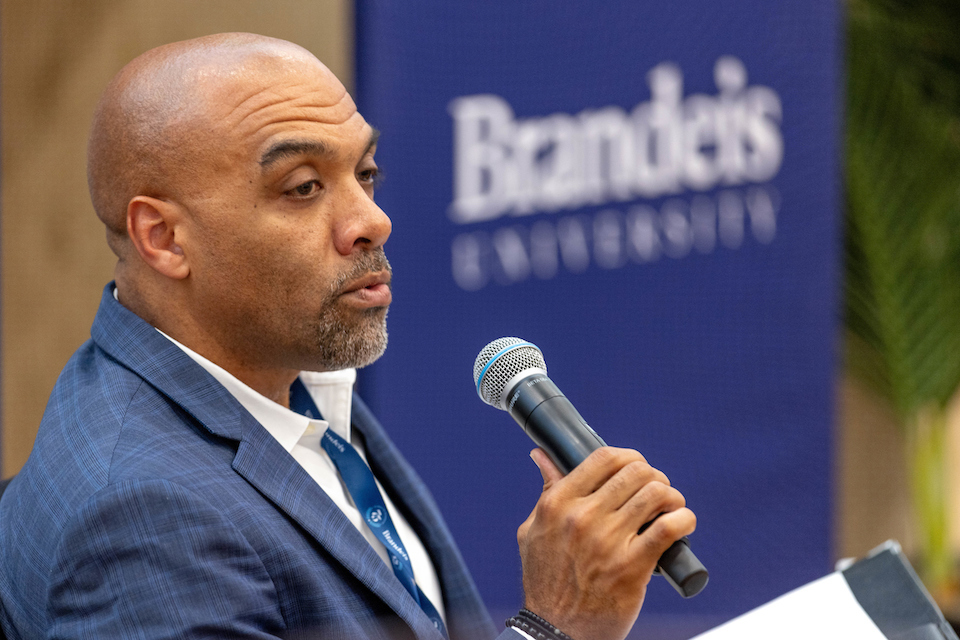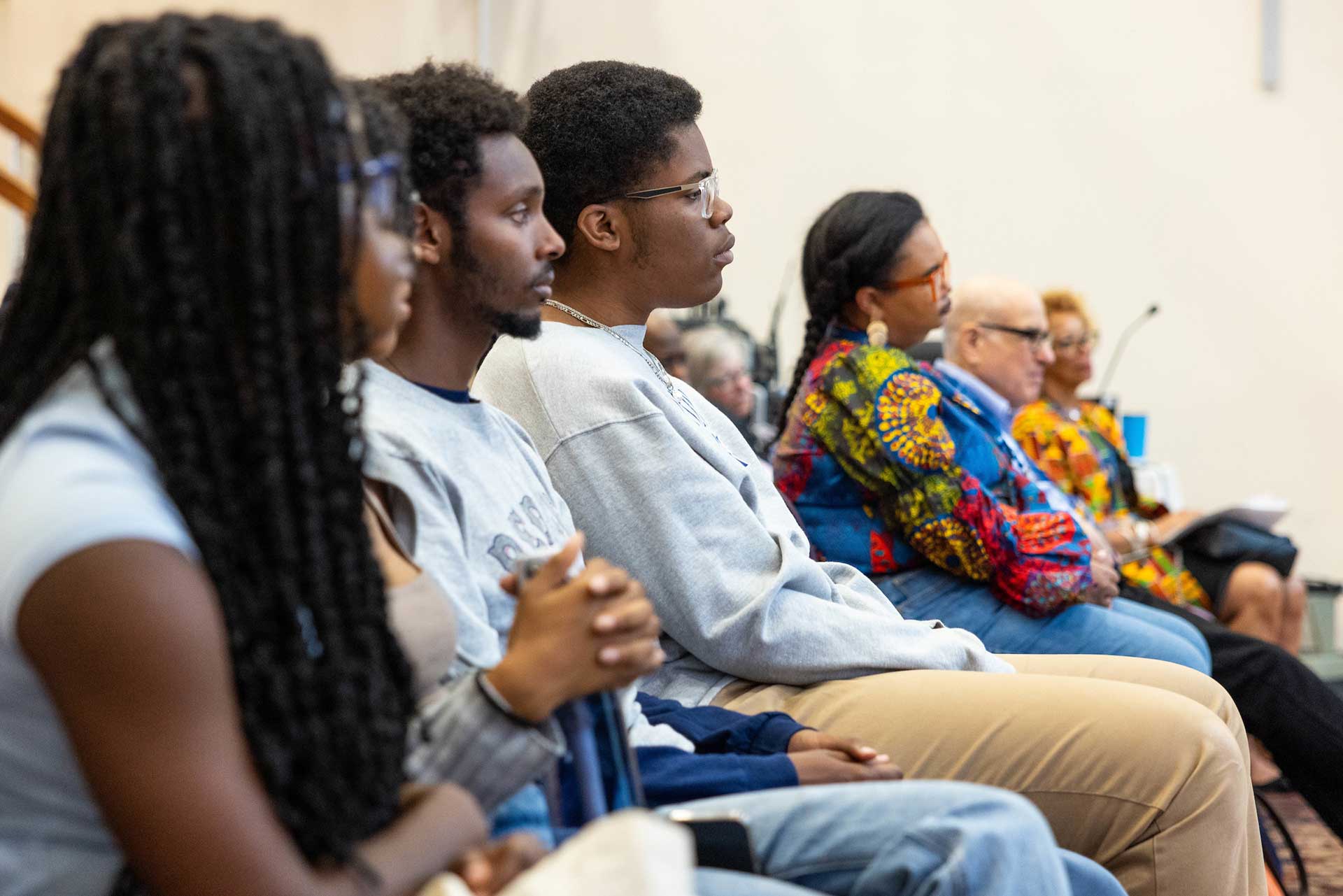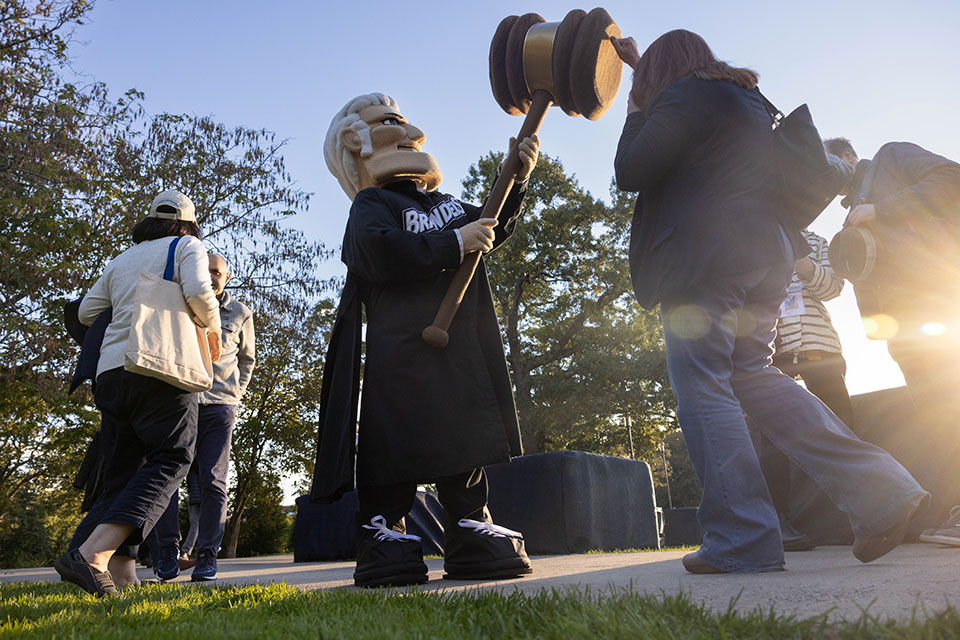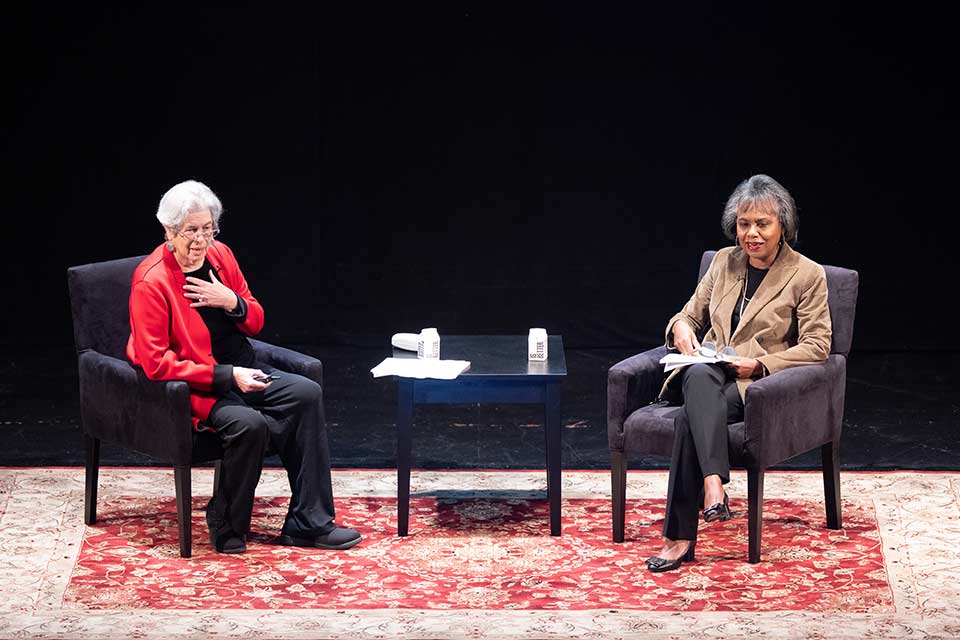Black Brandeis, Black History: A Significant Legacy
Professor Chad Williams and Roy DeBerry ’70, MA’78, PhD’79, explore the history of Black life at Brandeis.

By David Eisenberg
Photography by Gaelen Morse
October 18, 2023
Black students and faculty, as well as visiting Black scholars, artists, and activists, have helped shape Brandeis’ intellectual, political, and cultural community since the university’s founding. Throughout Brandeis’ history, the activism of Black Brandeisians has pushed the university to live up to its ideals.
During the university’s 75th anniversary weekend, Chad Williams, Professor of History and African and African American Studies, led an academic panel intended to both celebrate and critically explore that history. He was joined in conversation by Roy DeBerry '70, MA'78, PhD'79, who helped organize the 1969 student occupation of Ford Hall that led to the creation of what is now the African and African American Studies (AAAS) Department.
These are some of the key insights Williams and DeBerry shared during the panel.
From the very beginning, the Black experience has been a central part of Brandeis’ story.
Williams pointed to a series of pivotal moments from the university’s earliest days to demonstrate how Black students and faculty, as well as visiting Black leaders, have helped shape its identity.
Some of those early moments include:
- Diplomat, activist, and Nobel Peace Prize winner Ralph Bunche delivering the university’s first convocation speech;
- Herman Hemingway ’53 and Theresa Danley ’53 becoming the first two Black graduates;
- The 1958 establishment of the Wien International Scholarship enabling more students from Africa and the Caribbean to come to Brandeis
- Martin Luther King Jr., Malcolm X, and James Baldwin visiting campus during the 1962-1963 academic year.
Additionally, Williams pointed to a 1952 Ebony magazine article profiling a handful of Black Brandeis students, which lauded the school as one that “operates on a set of democratic principles, which could easily serve as goals for every other university in the United States.”
“Black people have been absolutely central to Brandeis’ history,” said Williams. “And recognizing this history is essential for how Brandeis must imagine its future.”

Black students have a long history of activism on campus.
The occupation of Ford Hall is one of the most important moments in Brandeis’ history. Lasting 11 days, students were demanding, among other things, the establishment of an African and African American Studies department.
DeBerry said he and his peers felt they had to take action because the university wasn’t living up to its foundational ideals.
“Brandeis had this mission of justice, of equality, of ‘truth unto its innermost parts,’ right? But when I get here, we look at the campus, in my class there are eight Black students… We saw the contradictions. If you have these theories and you have these concepts, and we look around and we don’t see it, we have an obligation to make it better,” he said. “We were not against this university. We wanted this university to be better.”
Williams added that Brandeis was never “immune” from racism, and shared how other Black students – even before the occupation of Ford Hall and despite positive press from places like Ebony – still felt marginalized.
Williams and DeBerry also acknowledged that some of these issues persist, as evidenced, for example, by Ford Hall 2015.
The legacy of Black Brandeisians is one of major significance.
Students, faculty, visiting artists, intellectuals, and others are all part of the legacy of Black life at Brandeis, Williams said.
A shortlist of figures who have contributed to that legacy include Thelonius Monk, The Supremes, and Kendrick Lamar, who have all performed on campus; honorary degree recipients like Harry Belafonte, Whoopi Goldberg, Bill Russell, Deval Patrick, and Annette Gordon-Reed; faculty like Pauli Murray, Anita Hill, and Faith Smith, who holds the first endowed AAAS professorship; and Maya Angelou, Toni Morrison, and Eddie Murphy, who have all spoken on campus.
Most importantly, though, Williams said, “our legacy is students” – those who have “built community in and outside of the classroom,” “demonstrated leadership in student government,” and “who through their activism have made social justice more than empty words.”
“We’ve graduated, and as alumni, have represented the best of what this university is and what it can be,” said Williams. “This is Brandeis. This is Black Brandeis. This is Black history. This is all of our history.”



